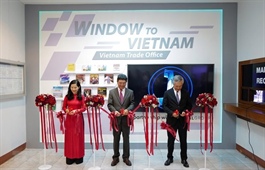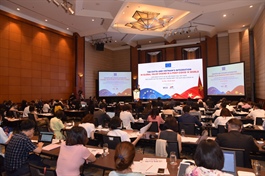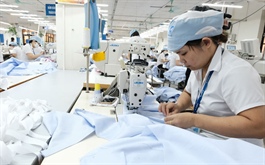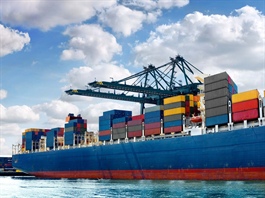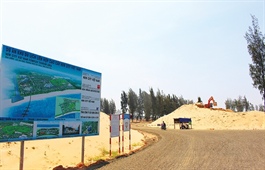Accelerating evolution towards modern trade and e-commerce
Accelerating evolution towards modern trade and e-commerce
As 65 per cent of export duties from the European Union to Vietnam will be eliminated, while the remaining will be gradually phased out during the next 10 years, the removal timeline of EU good tariffs will provide some advantage for the modern trade and e-commerce channel in Vietnam.

Phong Quach - Head of Strategy3 at Ipsos Vietnam
|
While traditional trade is still the most important channel in Vietnam, the shift towards the more modern e-commerce channel will speed up due to the implementation of the EU-Vietnam Free Trade Agreement (EVFTA).
European goods, which also come with the EU’s standard of quality, could be easily accepted by a large portion of Vietnamese consumers. These products can come with a higher price tag and associated requirements for storing and distributing, which makes them more suitable for modern trade and e-commerce channels.
Since consumers using either one of these channels will have more choice, the EVFTA’s implementation might provide certain catches for these two channels to grow faster.
The World Bank assessed that private consumption in Vietnam has grown into an important contributor to GDP growth as the result of rising expanding middle class and wages.
With higher disposable income, a large portion of the Vietnamese middle class is trying out European goods. On the one hand, traditional trade, which has been competing with convenience stores and mini-marts, is not going to a major beneficiary of the EVFTA. However, in the foreseeable future, the traditional channel will still account for a large share of the market. Interesting trends to observe include how traditional trade can evolve to compete with the other channels which can provide an increasingly diverse range of products.
A new landscape?
One of the most notable commitments from Vietnam is to remove Economic Needs Test (ENT) requirements within five years of the EVFTA coming into force. The World Trade Organization requires an ENT for the establishment of retail outlets. The EVFTA’s requirements are similar but differ in ENT exemptions and the specified timeline.
This seems to constitute a significant advantage for large retail investment, such as a shopping malls. However, it is not a clear merit as the Vietnamese government still holds the right to approve retail planning and other required investment certifications.
With the impact of the pandemic on the global economy, the abolishment of ENT – a requirement once viewed as a considerable barrier for foreign investment in retail – will not result in large direct retail investment from EU businesses in Vietnam. Also, since EU investors need knowledge and a supplier network in Vietnam, mergers and acquisitions may be a viable method for market entry.
Meanwhile, pharmaceutical retail is a special case that might see robust transformation, partly due to EVFTA commitments. Pharmacies in Vietnam are now required to be digitally connected to the National Centralised Database which is managed by the Drug Administration of Vietnam under the Ministry of Health (MoH).
This progress will continue to tighten management over prescription medicine and antibiotic sales in Vietnam. Moreover, the EVFTA allows EU pharmaceutical firms to import and sell to distributors in Vietnam, who will be hard-pressed to adapt to the new requirements of the MoH and the EVFTA. This is a significant opportunity for Vietnamese players to adjust, improve, and upgrade their competitive edge.
Opportunities for EU businesses
New access to EU goods will require relevant businesses and experts who understand both doing business in Vietnam and sourcing goods from the EU. If these businesses are able to identify correctly the demand of the Vietnamese people, they will provide valuable knowledge and services for local retailers so that goods can be made available in the domestic market.
If successful, there will be more opportunities for businesses to provide training, workshops, and seminars, since retailers in both the EU and Vietnam will look to understand and explore their respective new markets.
With the access to European goods, certain retailers in Vietnam might want to rebuild their current business or launch new ones that are associated with the new image of quality and standards. European consultants can help to replicate the lessons and share experiences.
Finally, EU retailers will seek vast sourcing opportunities in Vietnam, where human resources are abundant and young. The EU delegation in Vietnam, in a report about the EVFTA, suggested that both economies are “strongly complementary”, and Vietnam’s competitiveness in the agri-food sector and labour intensive industries, such as textiles and footwear, are not to be neglected by EU investors.
With the EU-Vietnam Investment Protection Agreement, rules of origin, and geographical indication in the EVFTA, Vietnam’s agri-food is expected to be one of the top sectors to benefit from the historic deal. For EU retailers, developing sourcing strategies and building supplier networks are far more important than investing in a direct presence in Vietnam.







